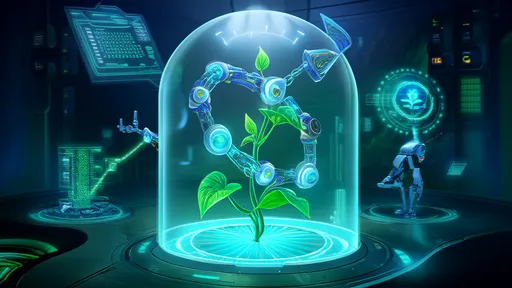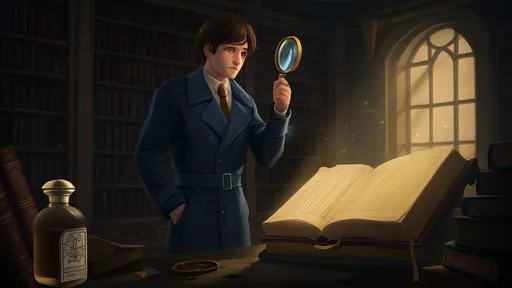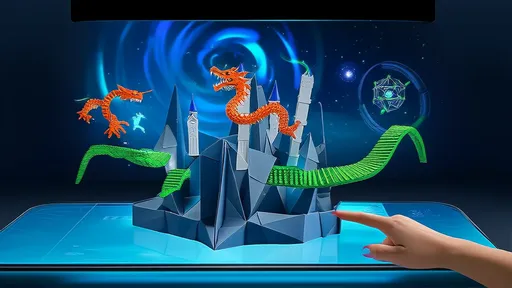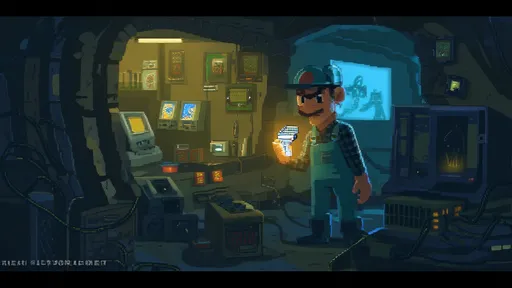In an era where visual storytelling dominates the gaming industry, a revolutionary approach is emerging that appeals to one of our most underutilized senses: smell. Olfactory narrative games are breaking new ground by incorporating scent as a core gameplay mechanic, allowing players to unlock plotlines and discover hidden clues through their noses. This innovative fusion of technology and storytelling is redefining immersion, creating experiences that linger in memory long after the game ends.
The concept might sound futuristic, but the marriage of scent and narrative has deep roots in human history. Ancient cultures used aromatic substances in rituals and storytelling, understanding the powerful connection between smell and memory. Modern game developers are now harnessing this primal connection, using digital scent technology to create multi-sensory adventures. Unlike traditional games where visual cues guide progression, these olfactory experiences require players to literally follow their nose to advance the story.
At the forefront of this movement are experimental game studios developing specialized hardware that syncs with gameplay to release precise aromas at key moments. These devices range from compact USB-connected diffusers to more sophisticated systems capable of blending multiple scents. When a player encounters a mysterious liquid in-game, their device might emit a floral perfume or acrid chemical smell, providing vital context about the substance's nature. The scent becomes a language of its own, conveying information that visuals alone cannot express.
The narrative potential of scent-driven gameplay is vast and largely unexplored. Imagine detective games where identifying a suspect's distinctive cologne breaks open a case, or survival horror titles where the creeping smell of decay signals approaching danger before any visible threat appears. Historical adventures could transport players through time with authentic period-accurate smells, from the smoky taverns of medieval Europe to the spice markets of ancient Mesopotamia. Each whiff becomes a breadcrumb in the story's trail.
Psychological studies confirm what perfumers have known for centuries: scent evokes emotion and memory more directly than any other sense. Game designers are leveraging this phenomenon to create deeper emotional connections with players. A whiff of lavender might suddenly recall a character's childhood memory, while the smell of burning wood could trigger traumatic flashbacks that reshape understanding of the plot. These scent-induced narrative turns create personal, visceral experiences that differ slightly for each player based on their unique scent associations.
Technical challenges remain significant in this nascent field. Current scent delivery systems struggle with rapid scent transitions and residual odors that can blur the narrative experience. However, innovators are making breakthroughs with solutions like cartridge-based systems that can switch between dozens of aromas instantly and air purification between scent releases. The holy grail remains a compact, affordable device capable of producing hundreds of distinct smells with cinema-quality precision.
Beyond gaming, the implications of olfactory storytelling extend to education, therapy, and archival preservation. Museums could recreate historical environments with authentic smells, while therapists might use scent-narrative games to help process memories. As the technology matures, we may see scent become a standard narrative tool across all media, fundamentally changing how stories are told and experienced. The next frontier of immersive storytelling isn't higher resolution graphics - it's something far more primal and powerful, waiting right under our noses.

By /Jul 3, 2025

By /Jul 3, 2025

By /Jul 3, 2025

By /Jul 3, 2025

By /Jul 3, 2025

By /Jul 3, 2025

By /Jul 3, 2025

By /Jul 3, 2025

By /Jul 3, 2025

By /Jul 3, 2025

By /Jul 3, 2025

By /Jul 3, 2025

By /Jul 3, 2025

By /Jul 3, 2025

By /Jul 3, 2025

By /Jul 3, 2025

By /Jul 3, 2025

By /Jul 3, 2025